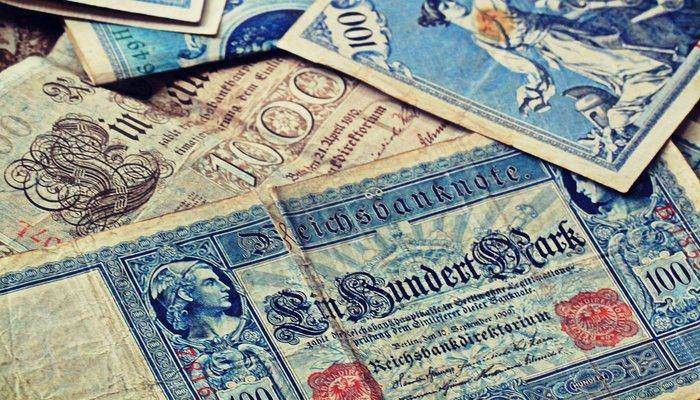Stock Market Firsts and Milestones

Who got there first on the stock market? Or for that matter, where was the first stock market ever? This article takes a look at some bite-sized fun facts about who did what first in stock markets on other shores as well as right here in Singapore.
A long history of firsts
- Investopedia traces the very first beginnings of stock market activity all the way back to the 1300s, when the Venetians became the first to begin trading securities from governments overseas. These Venetians kept the details of issues for sale handy on a slate, and have meetings with clients in the same way brokers do in the present day.
- The Stock Exchange in Antwerp, Belgium back in 1531 is arguably the world’s first real stock exchange. It’s funny considering that this first real stock exchange did not actually deal in stocks (because they hadn’t been “invented” yet) — instead, the Antwerp Stock Exchange traded in bonds and promissory notes.
- Founded in 1602 by the Dutch East India Company, the Amsterdam Stock Exchange is considered by some to be the world’s oldest stock exchange. Today, together with the Brussels Stock Exchange and Paris Stock Exchange, it is part of what is known as Euronext Amsterdam.
- When John Castaing started to keep lists of stock and commodity prices in 1698, he sowed the seeds of what would later become the London Stock Exchange (LSE). But until the LSE was properly established in 1773, shares and debt issues were stuck on the doors of London coffee shops, where investors would meet up with brokers to trade.
- Before the LSE even opened its doors for the first time, the first stock market crash took place in 1720, when shares of the South Seas Company fell from GBP1,050 in June, to just GBP150 in September. The crash bankrupted many companies and individual investors in Great Britain.
- Did you know that it was the Philadelphia Stock Exchange (PHLX), and not the New York Stock Exchange (NYSE) to become the first stock exchange in the United States? Since first opening its doors in 1790, the PHLX has offered equity, currency and index trading.
- The NYSE began its trading powerhouse run beneath a buttonwood tree in 1792. Nicknamed “The Big Board”, the NYSE is now the world’s biggest stock exchange in terms of market capitalisation, which stands at over USD12 trillion.
- The New York Price Current became the first newspaper to publish stock prices and commodities prices in 1797. (The Wall Street Journal wouldn’t be published until 1851.)
- The first ticker tape was invented by Edward A. Calahan in 1863 — it printed stocks, bonds and commodities data on paper tape three-quarters of an inch wide, and sent this data to brokerages. The machine was called a “stock ticker” because of the sound it made.
- Not a buttonwood tree, but banyan trees shaded the first operations of the Bombay Stock Exchange (BSE) in 1875. Since becoming the first stock exchange in Asia, the BSE now has more listings than any other stock exchange in the world with over 5,500 listed companies.
- Charles Dow debuted the Dow Jones Industrial Average (DJIA) in 1896 as the first index to list only industrial shares — on its first day, the DJIA listed 12 companies.
- The Teleregister Corporation installed the first electronic display quotation board in a brokerage in 1929. The quotation board displayed current data for specific stocks, such as yesterday’s closing price, opening price, current price, and the highest and lowest price of the day.
- The first computerised stock quote delivery systems came out in the early 1960’s courtesy of Ultronics and Scantlin Electronics. The latter produced the Quotron system, which was a custom terminal which looked a like cross between a phone and a calculator. Quotron’s keys were for quickly obtaining prices and other market data.
- The National Association of Securities Dealers Automated Quotations, better known as the Nasdaq, came along to challenge the NYSE in 1971. Having made its debut as the first electronic stock exchange in the world, the Nasdaq is now the world’s highest volume stock exchange.
- A 2014 Forbes article names Bart Mackay as the world’s first “pot stock” billionaire. Mr Mackay owns 15.7 million shares of investment company, CannaVest worth USD1.8 billion.
Singapore Stock Market Milestones
- The Singapore Exchange (SGX) has a proud history of stock market firsts such as being Asia’ first central clearing house for financial products and commodities.
- The SGX built the fastest order execution engine ever called SGX Reach. Tests showed the engine reached an average order response time of less than 90 microseconds, which is a record-breaking, world’s fastest order execution time.
- In 2014, the SGX won several service awards both at home and in London:
- Asia Pacific Exchange of the Year
- Asia Central Counterparty of the Year
- Clearing House of the Year
- Best Innovation by an Exchange (for its SGX Iron Ore Futures)
- Best New Contract in Currency (for its INR/USD Futures contract)
- Asia Risk Awards named the SGX, Derivatives Exchange of the Year in 2014 and 2015. The Awards recognise best practices and innovation in derivatives and risk management throughout the Asia Pacific.
- In 2015, Global Capital also named the SGX, Asia Pacific Derivatives Exchange of the Year, while the Futures & Options World International Awards recognised the SGX with the following distinctions:
- Global Exchange of the Year
- Exchange of the Year — Asia, Australasia and MEA
- Most Innovative New Currency Contract (for its USD/CNH futures contract)
- Mobile social trading platform, Spiking made its debut in 2016. The Spiking app consolidates and verifies the latest SGX disclosures and other trading information from listed companies and sophisticated investors, or those who own more than 5% of a company’s shares. Spiking then releases this up-to-the-minute information to its subscribers on the app.
Be among the first to learn of SGX trading events by tracking the buying and selling activities of more than 8,000 top investors in real time. Follow celebrity investors and companies of interest, and interact with with other investors by downloading the Spiking app today.

